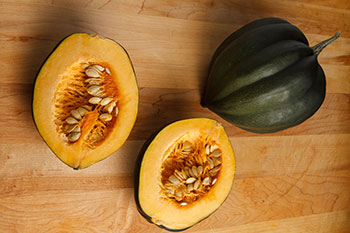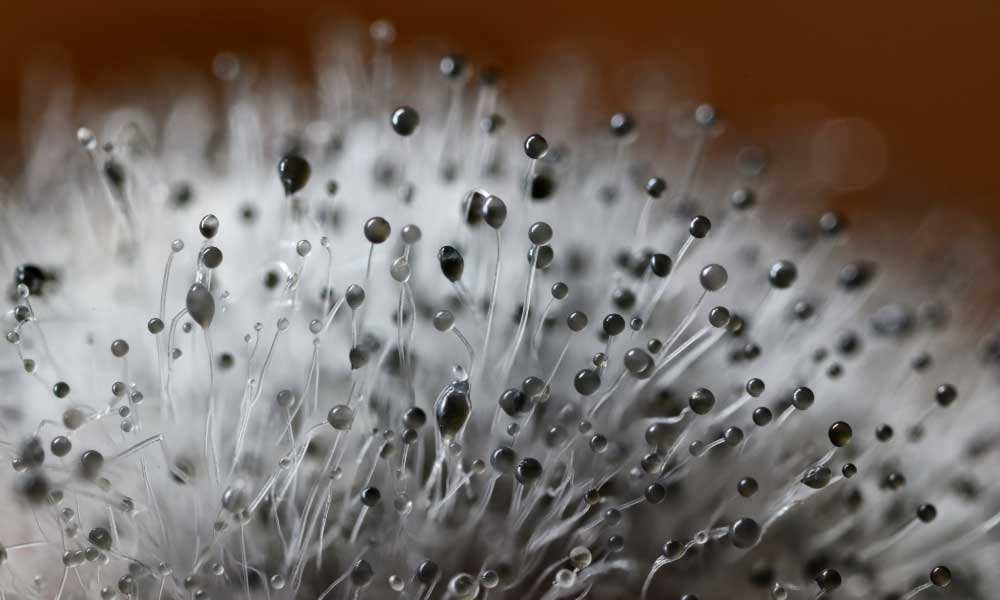Description & Health Benefits
 Winter squash is a member of cucurbitaceae (gourd) family, over 800 species, including gourds, melons, squashes & pumpkins.
Winter squash is a member of cucurbitaceae (gourd) family, over 800 species, including gourds, melons, squashes & pumpkins.- Types of winter squash: acorn, buttercup, butternut, carnival, delicate, hubbard, spaghetti, golden delicious, etc.
- Excellent source of beta carotene which our bodies convert into vitamin A. Assists with healthy vision, immune function, and reproduction.
- Beta-carotene is also an antioxidant found in foods that are orange and yellow, which may lower your risk of heart disease and cancer.
Selecting, Storing & Preparing
- Select squash with a firm outer rind (skin). Squash should also feel heavy.
- Store in a cool and dry place, around 50°F, such as a basement. Can keep up to 3 months or more, depending on the variety and storage method.
- Prepare squash by washing the outer rind. Using a cutting board on a firm surface, cut squash in half using a sharp knife. Use a spoon to scoop out seeds and stringy fibers. Bake in an oven safe dish with ½ cup of water, cut side down or brush with olive oil and bake for a “roasted” flavor. Bake for 45-60 minutes, checking for tenderness by piercing a fork through the skin. Baking times will vary. You can also cook in a microwave until tender.
- Squash can be cooked, mashed and frozen for future use in individual containers or freezer bags. Just remove frozen squash in the morning to use for your evening meal.
Winter Squash Nutrition Facts
1 cup cooked
Calories: 76 | Protein: 1.82g | Fat: 0.72g | Carbohydrate: 18g | Fiber: 5.7g | Sugars: 6.76g | Calcium: 45mg | Magnesium: 27mg | Potassium: 494mg | Vitamin C: 19.7mg | Folate: 41μg | Vitamin A: 10,707IU | Vitamin K: 9.0μg

Recipes
Request an Appointment
